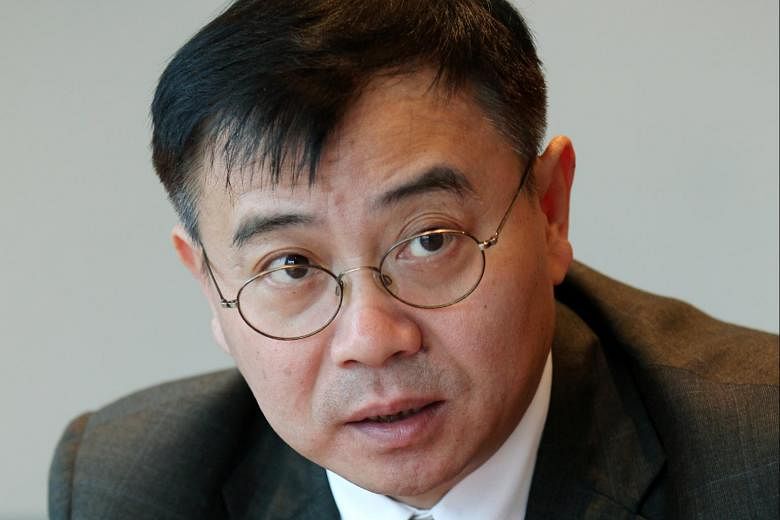NEW YORK (BLOOMBERG) - China's economy has more imbalances today than it did when Mao Zedong's Great Leap Forward campaign contributed to a crash half a century ago, according to Goldman Sachs' Ha Jiming.
Fixed-asset investment in the world's second-biggest economy amounted to 46 per cent of gross domestic product last year, Mr Ha, the vice chairman of Goldman's money management unit in China, said at conference in New York on Wednesday (Oct 14). That's more than in 1958, he said, during Mao's ill-fated effort supercharge China's transformation into an industrialized nation.
"The economy is more distorted and imbalanced than the Great Leap Forward," Mr Ha, who's also the chief investment strategist at Goldman's wealth unit in China, said at an event hosted by Beijing-based Caixin Magazine.
While rapid investment has turned China into one of the 21st century's fastest-growing major economies, it also led to overproduction in industries from steel to cement and sparked concern that some projects will fail to generate the returns needed to service a record build-up of debt. China's ratio of investment to gross domestic product has exceeded that of Japan in the late 1980s, just before a bursting of that nation's real- estate bubble ushered in more than two decades of anemic growth, according to the International Monetary Fund.
Policy makers in China, which ramped up investment to shield the economy from the global financial crisis in 2008, have been trying create a more sustainable growth model based on services and domestic consumption. GDP probably expanded 6.8 per cent in the third quarter, which would be the slowest since 2009 and below the government's target of about 7 per cent for 2015, according to the median forecast of economists surveyed by Bloomberg before the data is released on Monday.
Mao, who died in 1976, began the Great Leap Forward as an attempt to modernize China's economy. He made major investments in state-run enterprises, established agricultural collectives and ordered citizens to set up backyard steel furnaces - used to melt down everything from utensils to door handles. Historians have argued that the movement, coupled with a drought, contributed to a famine and millions of deaths.
While Mr Ha didn't suggest anything similar would happen to modern-day China, he said the economy will only rebound once President Xi Jinping's government tackles producer-price deflation, overproduction and excessive lending. The former IMF economist implored authorities to avoid the pursuit of growth at any cost.
The reform of state-owned enterprises - or SOEs - holds the key to unleashing China's potential, according to Nicholas Lardy, a senior fellow at the Peterson Institute for International Economics, who was also speaking at the conference. SOEs earn returns of as little as 3 per cent on their 110 trillion yuan ($17 trillion) of assets, less than half the rate of private companies, he said.
Turning to the yuan, Goldman's Mr Ha said his Chinese clients complained it was becoming more difficult to transfer money abroad after recent policy changes led to a tightening of capital controls. The People's Bank of China stepped up intervention to support the currency following a surprise devaluation in August.
While China's central bank has the resources and willingness to keep the yuan stable in the short term, Mr Ha said, the currency will weaken in coming years as the country's trade balance turns from a surplus to a deficit.
"In the longer run, the renminbi should depreciate," he said.

